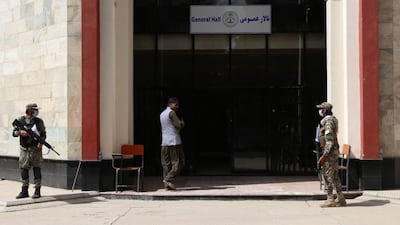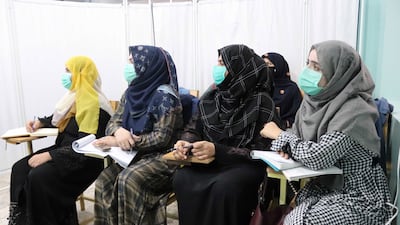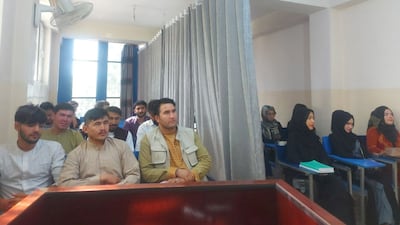The hardline leadership of the Taliban has decided against opening schools to girls beyond Grade 6.
The about-turn came as Afghanistan’s education ministry prepared for the start of the a new session.
A statement from the ministry had urged “all students” to attend school, AP reported.
On Tuesday, a Ministry of Education spokesman released a video congratulating all students on their return to class.
On Wednesday, a Ministry of Education notice said schools for girls would be closed until a plan was drawn up in accordance with the Taliban's interpretation of Sharia and Afghan culture, government news agency Bakhtar News said.
“We inform all girls' high schools and those schools that are having female students above Class 6 that they are off until the next order,” the notice read.
The decision is certain to anger the international community that has been urging Taliban leaders to open schools and give women their rights to public spaces.
The UN and the US condemned the reported closures on Wednesday.
“The UN in Afghanistan deplores today's reported announcement by the Taliban that they are further extending their indefinite ban on female students above the sixth grade being permitted to return school,” the UN Mission to Afghanistan said.
Ian McCary, US chargé d’affaires for Afghanistan, said in a tweet that he was deeply troubled by the reports.
“This is very disappointing and contradicts many Taliban assurances and statements,” he said.
The decision appeared to be a concession to the rural and tribal power base of the Taliban movement that is reluctant to send daughters to school.
Teachers and students from three secondary schools around the capital, Kabul, said girls had returned in excitement to campuses on Wednesday morning but were ordered to go home.
They said many pupils left in tears, Reuters reported.
Girls have been banned from school beyond Grade 6 in much of the country since the Taliban returned to power in August.
While universities were allowed to open, Taliban edicts on education have been erratic.
A handful of provinces continued to provide education to all, but most provinces closed educational institutions for girls and women.
Pakistani activist Malala Yousafzai, herself shot by the Taliban gunmen in retaliation for her work on girls education, said the Taliban are "afraid".
"I had one hope for today: that Afghan girls walking to school would not be sent back home. But the Taliban did not keep their promise. They will keep finding excuses to stop girls from learning – because they are afraid of educated girls and empowered women," she wrote on Twitter.
In Kabul, private schools and universities have operated without interruption.
The Taliban administration fears enrolment of girls beyond Grade 6 could erode their base, Waheedullah Hashmi, external relations and donor representative with the Taliban-led administration, told AP.
“The leadership hasn’t decided when or how they will allow girls to return to school,” Mr Hashmi said, accepting that while urban centres are mostly supportive of girls' education, much of rural Afghanistan is opposed, particularly in tribal Pashtun regions.
Most Taliban are ethnic Pashtuns.
“In some rural areas, a brother will disown a brother in the city if he finds out that he is letting his daughters go to school,” said Mr Hashimi, who said the Taliban leadership is trying to decide how to open education for girls beyond Grade 6 across the country.
In the Taliban's sweep through the country last year, other ethnic groups such as Uzbeks and Tajiks in the north of Afghanistan either joined with the Taliban or chose not to oppose them.









